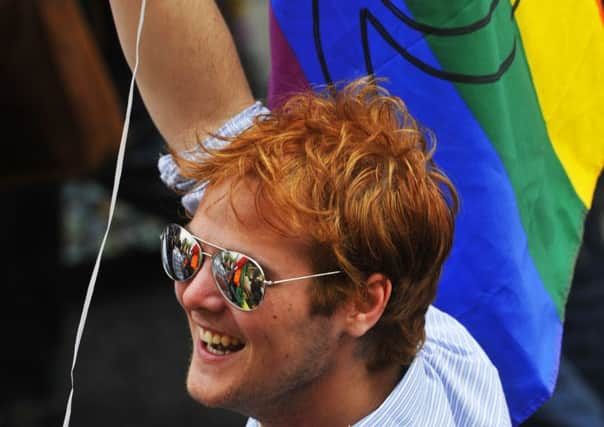Almost half of bisexuals ‘face biphobia’


Biphobia was most commonly experienced within LGBT (lesbian, gay, bisexual and transgender) and NHS services, according to the Complicated? report, launched by the Equality Network today.
It found almost a third (28%) of those surveyed said they never feel comfortable telling their GP they are bisexual.
Advertisement
Hide AdAdvertisement
Hide AdThe research, which surveyed 515 bisexual people across the UK, is said to be the first UK-wide research report on bisexual people’s experience of services.
It found “clear evidence of biphobic discrimination” and said that for many bisexual people, the report “simply reflects the realities they have been painfully aware of for a long time”.
Tim Hopkins, director of the Equality Network, the Scottish lesbian, gay, bisexual, transgender and intersex equality charity, said: “Unfortunately, as the report findings show, bisexual people are often misunderstood and discriminated against by many services.
“This leaves them at high risk of not getting appropriate information and support. We hope that this report will help services to better understand and assist bisexual people.”
The research also found that almost four in 10 (38%) bisexual people have experienced sexual harassment.
The study suggests sexual harassment often centred on negative stereotypes falsely labelling bisexual people as promiscuous or unfaithful.
Respondents highlighted incidents of biphobia and homophobia in the health service, with one person commenting: “I’ve experienced serious homophobia and biphobia from NHS services, including a GP who made a remark about ‘revolting faggots’ and a psychotherapist who told me that because I’m bisexual, it was my fault I’d been raped.”
Researchers found that two-thirds (66%) of respondents feel they have to pass as straight and 42% feel they need to pass as gay or lesbian when accessing services.
Advertisement
Hide AdAdvertisement
Hide AdThe research also noted that over a quarter of bisexual people have experienced prejudice when accessing LGBT services.
One respondent reported they had “heard lots of negative comments about bisexual people and dismissal of the need to include bisexual people”. Another respondent reported being told that “bisexuals are ‘confused’ and not as good as ‘real gays’”.
The Equality Network report also highlights examples of good practice in service provision and proposes a roadmap to make services more inclusive for bisexual people.
This includes urging organisations to deal with biphobia, research bisexuality, bisexual people’s experiences and bisexual inclusion and ensure that any training they receive or provide on sexual orientation explicitly and significantly includes bisexual equality in detail.
Respondents to the survey called for mainstream and LGBT services to involve bisexual people more in service development.
Sam Rankin, intersectional equalities co-ordinator and lead author of the report, said: “When explaining why bisexual equality is important and how people are discriminated against it is vital that we have robust data and real life examples to illustrate our points.
“Now that we have these we, and others, will be better able to take more effective steps in providing appropriate, inclusive services.”